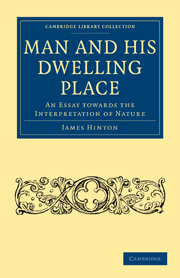Summary
GOD IS LOVE.
WE have necessarily inferred, from our experience, the existence of an inert world; conceiving that the fact corresponds to our impressions. But what we are compelled to infer depends, in every case, upon our knowledge: only when that is complete and exact, can an inference, however necessary, or belief, however unavoidable, possess correctness. A person ignorant of any essential circumstance, in any case, necessarily infers an erroneous conclusion. The necessity of a belief has no necessary relation to its truth; true and false beliefs are equally necessary to instructed and uninstructed persons respectively. Nor is there any conscious difference to the mind, in respect to its necessity, between a true and a false belief. They can be distinguished only by being tested. A true inference proves itself true on examination; a false inference is found by the same means to be false, and proves thereby ignorance on the part of him to whom it has been necessary.
These are very obvious considerations to apply to our opinions respecting the world; nor would there have been any difficulty in applying them, but for one circumstance, which has seemed to distinguish those opinions from our opinions on all other subjects. It has been thought that the belief respecting the world, which we derive from our consciousness, must be held infallible, because, if it is not so, the sole basis for certainty is taken away. It has been supposed that if such belief is untrue, we not only are under illusion, but are hopelessly and inevitably so: under an illusion from which man can never escape.
- Type
- Chapter
- Information
- Man and his Dwelling PlaceAn Essay towards the Interpretation of Nature, pp. 76 - 88Publisher: Cambridge University PressPrint publication year: 2009First published in: 1859

